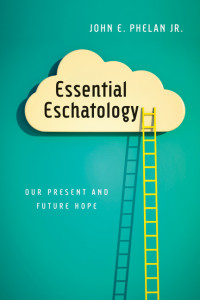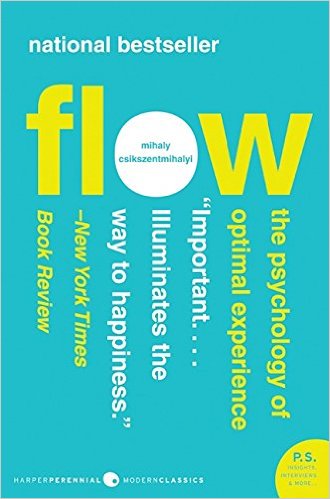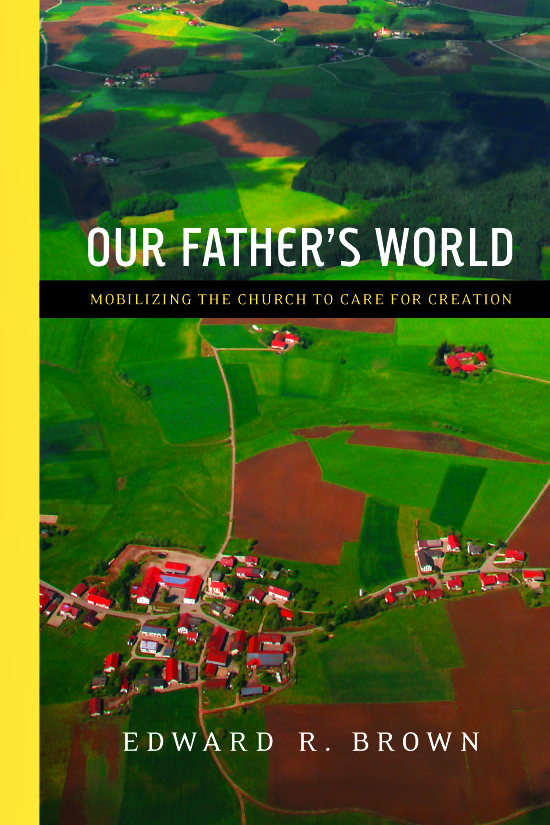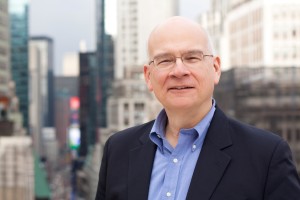The Creation story and Revelations are the challenging bookends of the Bible. The first, at first blush, seems to run counter to science. The second makes the powerful claim that, among other things, this world will not continue on its present course for all time. Somehow and at some time, Jesus will come again to make all things new, and the spiritual dimension of God will fill all of the heavens and all of the earth. And come to think of it, that’s about as counter to a strictly scientific mindset as you can find as well.
In the churches I’ve attended, these two bookends – the beginning of the world and its new beginning to come – have received little attention, and by the lack of attention and transparent engagement, I’ve sensed an unspoken unease. I’m aware, on the other hand, of more fundamentalist churches that have engaged those bookends with fierce insistence on their literal truth in ways that show little engagement with the nuances of the texts and that are at odds with the themes and chords of the rest of the Bible.
For insight into what the Bible points to in terms of the future of God’s world, I’ve come across a book that I would heartily recommend – Essential Eschatology: Our Present and Future Hope by John E. Phelan Jr.. Below you’ll find an edited transcript of my recent conversation with him that explores some of the themes of the book. I believe you’ll quickly see why I wanted to talk to him.
John is currently the Senior Professor of Theological Studies at North Park Seminary in Chicago, which is the seminary for the Evangelical Covenant Church. In classic Scandinavian self-deprecation, he says of that title, “It just means I’m old, I guess.” Until 2010, he was the seminary’s president and dean, and in the 1980s, he was the dean of students. Between two distinct stints at the Seminary, he was pastor to congregations in Florida and Kansas. I first realized I had much to learn from John when I found myself cutting out his lucidly-written essays from the Covenant Companion, the Evangelical Covenant Church’s award-winning magazine, because I wanted to further meditate on his insights. He was kind enough to be willing to be interviewed.
Nathan: What inspired you to write Essential Eschatology?
John: It’s been a long interest of mine ever since I was a young boy. And over the years of being at the seminary, a lot of pastors and laypeople asked me if I could recommend a book on eschatology. I would usually say no, because I thought so many of the books did an inadequate job of really wrestling with the issues of the text or were too complex for many pastors and most laypeople to wrestle with or too much of the academic field. Because I thought the subject was, in popular culture, very much abused, I decided to do my part to try to bring clarity to it.

Nathan: In your book you write that eschatology is at the heart of Christianity. Can you say more about that?
John: Jesus comes and talks about the kingdom of God: his message is that God was in the process of making all things new. Whatever else eschatology is about, it is about participating in God’s intention to redeem and restore and renew the world. That’s the essence of eschatology. At one level, then, we are called to work alongside of God for renewal of the creation. We have a part of that and that’s a significant part of what it means to be the church.
Nathan: You write, in a way that echoes NT Wright and others, that “our destiny is an earthly destiny.” What does the Bible tell you about the end of history and God’s coming?
John: I think you could make an argument that what is most important in the book of Isaiah is the hope for the peaceable kingdom, for the renewal of heaven and earth, for the restoration of God’s people to land and home and place. It is very earthy. You see that very profoundly outlined in the book of Isaiah. But then you get to the book of Revelation and you have a very similar kind of ending. As I’ve said before and as I say in the book, “We don’t go to heaven; heaven comes to us.” The new Jerusalem comes down and God makes his dwelling place with us. At the end of the book we end up on earth and not in heaven. I think that’s often been obscured or ignored.
Even in 1Thessalonians 4, a passage that is often used wrongly to speak of the so-called Rapture, you have the people go to meet Christ and then return to the earth.The image there is of the people of a city meeting an imperial visitor and welcoming him to the city. So even there it’s very clear that there’s an earthly destiny. Whatever else it means and however we understand it, at the end it means that God intends to make all things new.
Nathan: For me that sounds very compelling, but why do other interpretations that we often hear – for example, the Left Behind series – have so much power and popularity?
John: The great appeal of that approach is that it’s a compelling story. It’s an interesting narrative. I think it’s appealing for people to be part of the end group, part of those who are going to be snatched away from all of the difficulty and pain of the world and taken up to heaven. But there’s absolutely no Biblical basis for “the rapture. “ It’s simply not there. There’s nothing in the Bible that indicates a two-stage return of Christ. There’s ever only one. The notion that somehow that this secret rapture, which occurs in Christian thought only in the mid-19th century (never before that), has somehow become one of the dominant forces in thinking about eschatological matters among evangelicals is still quite stunning to me.
But it’s had a very good press. People have presented it very well. They’ve told a very compelling story, and not just with Left Behind but well before that. I remember as a child the prophecy charts and the conferences. And then you have incidents like the establishment of the state of Israel in 1948, which seemed to be part of the fulfillment of the expectation of the Dispensationalists. Whether or not that was the case, there were things that people could point to. But it’s something that only works if you live within acertain framework of engagement of the text and if you come with some rather large and unsupportable assumptions.
What I’ve told my students over the years is that the problem with the rapture is that it’s not in the Bible. Maybe that’s simple enough. It’s an extrapolation from of a set of assumptions that the old Dispensationalists made about the Bible. It originally came from a vision that a woman had in the 1830s, and then it was imposed on the texts. And as I said one of the key verses in 1Thessalonians 4 has nothing to do with the rapture. For one thing there are all kinds of angels and trumpets and bells and whistles. There’s nothing secret about it at all. And then the Dispensationalists have done other things like in Revelation chapter four with John’s great vision of the throne room. And the angel says, “Come up here.” Well, they’ve taken that to be the rapture of the church. That’s John being taken on a heavenly journey. That has nothing to do with the rapture of the church. You see what you want to see once you’ve determined that you want to see it. I think, unfortunately, that is what has happened with the rapture.
Nathan: I know you’ve told me the story in the past of how you came from a more fundamentalist background and when you went to college you had an experience that changed how you looked at the Bible. Can you share that?
John: Sure. I was raised in the Plymouth Brethren, and the Plymouth Brethren is a group that has a significant part of its origin in the work of John Nelson Darby. Darby was, if not the person who originated dispensationalism and the precursor of the whole Left Behind series, the significant organizer and preacher of it in Great Britain, continental Europe, and the United States. This approach to eschatology was central to my upbringing. It’s what I knew from the very beginning.

I ended up going to the Emmaus Bible School and signed up one semester for a course in prophecy. The regular professor that taught the course wasn’t teaching it that semester. Someone else was teaching it and he said, “We’re going to do something a little different.” Normally, when you study prophecy from a Dispensationalist viewpoint, it was more of a deductive thing – these are the assumptions on how we read this. You come in with a set of lenses, and there it is! He said “We’re going to study this inductively. We’re going to go to texts and we’re going to look at it as it stands – in Isaiah, Ezekial, Daniel, wherever – and we’ll see the system emerge.” And it didn’t for me. In fact, the more we read and studied those texts in their context the more I thought, “No, that’s not what its saying. I don’t think that’s right.”
That was an important class for me not just for that but for my whole thinking about how to read the Bible. It’s far too easy to read the Bible with your theological structures in place and lo and behold, what you think is there emerges, rather than reading it and asking as much as you can, “What was that context? What was that writer trying to say?” Which is not to say that that writer doesn’t say anything to you now. Rather it warns against imposing a structure which you’ve already determined as the way to read something and claiming that you found it there. Well, no. That’s not quite right. That was really a significant turning point for me, as I realized that not only did the system not arise there but later New Testament writers did all sorts of things with those texts that didn’t fit into that system either.
Nathan: I remember when a guest preacher spoke about the Second Coming at a church we were attending. He seemed to take a lot of pleasure in the redemptive violence that was going to come. There seemed something profoundly wrong in the emotional tone of that.
John: Yes. Think about Jesus weeping over Jerusalem rather than rubbing his hands in glee over what is going to be happening. I think there’s something quite ugly about the notion that we ought to rub our hands in glee over the anticipated suffering of our enemies. In fact, we ought to take passages that warn us about the impact of our actions to our own hearts and not be applying them to others. People who live in a kind of black and white world where there are friends and enemies and never the twain shall meet and who have this notion of God finally vindicating me, proving me right, can find themselves in the very ugly situation that you’re speaking of. I think the prayer of Jesus as he weeps over Jerusalem is a better model for us than the satisfied look at those we perceive as our enemies.
Nathan: Following up on that, can you talk more about God’s judgment being a good thing?
John: We often think of judgment in terms of punishment. We think of a law court. We think of a judge sitting at the bench handing down a sentence, having to go to prison, having to be executed, whatever it is. A judge in ancient Israel is not someone who punishes but someone who seeks to put things right. A judge in the Bible is someone who looks at a situation and says this is wrong and we’re going to put it right. We want to restore. We want to reclaim and renew. So the role of the judge is not simply to pass judgment or to do something to the offender but to look at the situation and ask , “How can I make this situation right?” In fact if you look at the law, a lot of the law is about what you do to set a situation right, not just what you do to punish an offender. I think the punitive way of thinking about legal matters is more of a modern than ancient.
You think of Solomon and the two woman claiming that they are the baby’s mother. Solomon wasn’t there to punish anybody. He was there to decide whose baby it was and to restore the baby to the mother. I think we need to look at our model of judgment and retribution and all that and think a little differently about it. Even in eschatological matters, to restore the people to the land, to restore God’s people to a relationship with Him is not a matter of punishment. Now bad things do happen to people, but that is a byproduct of setting things right and sometimes people resist God’s efforts to set things right. I think looking at that differently would be helpful for us so that we might recognize that there are people over there who might need things set right in them but there might be some things in us that might need to be set right as well. God as a judge is about restoring not just about punishing.
Nathan: You write that God’s coming “will involve all people and the whole creation.” How have Christians missed, overlooked, and ignored the value of creation to God?
John: I think this is one of the more difficult and frustrating areas for me. A lot of the eschatological theories in the late 19th century had a sense of the immediacy of God’s coming. In the famous book written at the end of the 19th century – Jesus is Coming Again – the author thought it was within a few years, so every ten years or so he updated his expectations. So when you couple that with the idea that the world is going to be destroyed, why care all that much about creation? Why invest all that energy to set something right or clean the air or purify the water if it was all going to be destroyed? So you have that certain area of Christian life, that eschatological expectation, that makes people indifferent to the creation.
I think the other thing is that on the more conservative evangelical side of things people have tended to also support our economic system. Anything that would limit the way you would use the world and its resources, not only ran against your eschatological expectations but your economic convictions. And so some folks would resist any kind of limitation on the way they ran their business or cared for (or didn’t care) for their farm and their land. On the evangelical side, then, there have been economic and eschatological and political reasons why people have resisted the idea that we should care for the environment when, again to go back to Isaiah, you have this notion of the peaceable kingdom at the center of what God is promising for his people.
Nathan: It’s striking to me that at the beginning of Genesis and at the end in Revelation you do have humanity, God, and Creation in some sort of unity.
John: Right. In Revelation you have this lovely picture of the water of life running through the city and these trees on either side producing leaves for the healing of the nations. So there is this healing relationship between the created order represented by the water of life and the trees and the nations, which of course means the Gentiles, the goyim. Those things are brought together in this beautiful image of the water of life and the trees of healing.
Nathan: You have some really interesting passages in the book about the American tendency to almost worship freedom in a way that is alien to the Bible. Please talk about the value of creation to God and our obligations to it in the context of the American belief in freedom as an ultimate value. How should we think about our role in the world and freedom?
John: That is a very complicated question because in one sense, obviously, freedom is one of the great gifts and virtues of the Christian life. Freedom from sin, freedom to love God, freedom to pursue a life with God – all of those things are critically important. “The Son has set you free and you shall be free indeed.” The notion of freedom is really important in the New Testament and certainly in the Old Testament, where you have the great narrative of the liberation of slaves from Egypt being one of the overarching narratives of the whole text, that “you were once slaves in Egypt and God has set you free.”
But to use that image, freedom, in the case of the Israelites, did not mean the kind of individualistic, laissez faire notion of freedom that we have today, that I as an individual should to be able to do anything that I want. When they arrive at Mount Sinai they realize that freedom from Egypt had brought them into a covenant with God and that relationship with God needed to be maintained in relationship with their fellow Israelites. Freedom never implies a lack of any kind of obligation or relationship with someone else. It never implies an absolute moral and spiritual autonomy that we sometimes seem to imagine in our American notion of freedom. It never implies that we have no obligations to God, each other, or to creation itself.
Nathan: How can local churches and the Church be ambassadors of God’s reconciliation in a meaningful way when the world’s issues, including the destruction of creation, are so big?
John: That’s one of the most perplexing questions. I would even start back a step earlier. How can the church (either small “c” or big “C”) be an agent of reconciliation in the world when we can’t get along with each other? When the church is so divided and people are so angry at one another, it’s really difficult. Part of the problem there is that people haven’t figured out how to live with difference. Certainly in our country we haven’t learned to live with difference. We haven’t figured out how to live with the other, whether politically or socially or educationally, whatever the “other” is, and learn to accept that people will look at things differently and there’s going to be conflict. That doesn’t mean that it requires that we demonize the other. Reconciliation does not mean that I win and you lose. It means that we come together around something common with our differences and stay together in spite of our differences, something which the church and society have found is singularly difficult to do.
I think that there is no huge, top-down solution to this. There are no orders from headquarters, whatever the headquarters happen to be, that are going to enforce the reconciling work of God within our churches or through our churches. But it involves the ongoing, challenging, difficult work of first seeking reconciliation with one another and then asking how we might be agents of reconciliation within our communities. We Americans, whether we are conservative or liberal, tend to look for big solutions. Big solutions are not always available, and they’re not always helpful. I’m much more drawn to the smaller solutions, the local solutions that move individuals toward reconciliation with God and each other.
Nathan: You use the term “missional collapse” when you are talking about the church. What would a church look like, concretely, if it were doing the reconciliation that you speak of?
John: I think that a church that’s paying attention to its own community, to where there is brokenness within its own community whether you’re talking about the community of the church itself or whether you’re talking about the community in which the church is set down. It’s difficult to save the world if you can’t help and be a light in your own community. It’s difficult to do something really large if you can’t do something fairly small. Sometimes I think small things in communities – whether it’s a feeding programs or cleaning up a local park or helping out at the local homeless shelter or advocating for more green space – can seem small and insignificant but I think they’re quite significant. They help demonstrate the presence and power of God’s love. Jesus goes around casting out demons here and healing a blind man there – significant acts but there were lots and lots of demon-possessed people. Even in his case, it was kind of a local thing. Preaching in Galilee, in this backwater. He ended up in Jerusalem, that’s where he got killed, but that’s not where he did most of his teaching work. He did it in the area where he had been born and raised. Being alert to the local and the personal and to forming the community within the local area is the only place to start.
Nathan: Towards the end of the book, you have a section of a chapter that’s called “The Strange God of the Bible” that talks about how we have tended to create these philosophical constructs of how God must act and how God is and how the God of the Bible is different than that. Can you say something about that?
John: We really don’t like God to be free. We would rather God be tied up and predictable, and, unfortunately, that’s just not the way God is. That’s pretty abundantly clear if you read the Bible carefully. And if God isn’t free, how can God be God? God can do whatever God wants to do, and that can be rather uncomfortable, particularly when you look in the Old Testament where there are some cases where God changes his mind. And the other startling thing about the Bible is that God evidently expects us to take a role in all this in ways that we might rather Him fix it Himself. We have an overwhelmingly interventionist idea about God, when God actually appears, at times, to say, “It’s up to you.” And that can be very uncomfortable.
The other thing I say is that we can only speak of God by way of analogy. If God is God, God is transcendent and eternal and I am mortal and set here in the earth and limited by my mind and imagination. So whatever I say about God, the best thing I can say about God is always partially wrong because I’m speaking out of a human experience. If you and I have a common experience, I can say to you, “Well, Nathan, I know how you feel.” But that’s not true. You know that and I know that. I know there’s an overlap, right, but we’re different people, and even the same experience can cause people to feel differently. And if that’s true of you and me, if I can’t fully understand you and you can’t fully understand me, how in the world do we think we can fully understand God?
So I think some humility and leaving some space for mystery, which is not something people in our tied-up evangelical world often want to do, is really important. We want God to be consistent in the ways we want God to be consistent rather than God having the freedom to act and interact with His world. I think it’s all too often that evangelicals are deists. They want a god out there who’s pretty well settled and perhaps intervening now and then when we want Him to or controlling everything so we don’t have much responsibility.
I think that’s one of the great complexities that we haven’t quite reckoned with – a free God.









